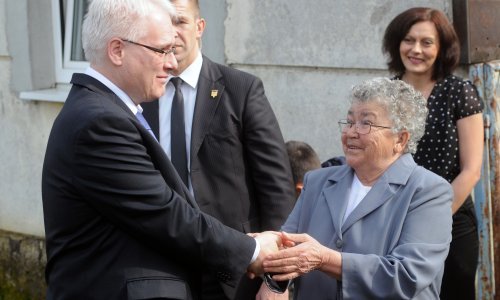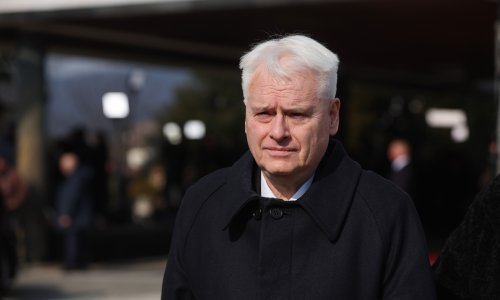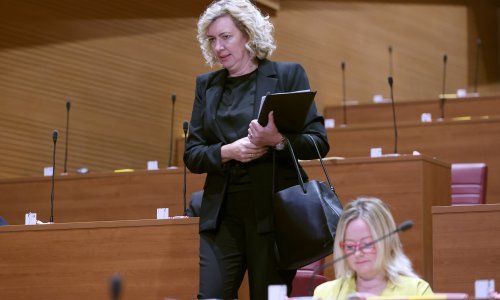Croatian President Ivo Josipovic delivered a talk at the Columbia University in New York City on Friday as part of the World Leaders Forum.
The talk, entitled "Transitional Justice: Croatian and International Response to War Crimes", focused on the roles of the International Criminal Tribunal for the former Yugoslavia (ICTY) in The Hague and the Croatian judiciary in determining responsibility for war crimes committed during Croatia's 1991-1995 Homeland War.
The lecture was given in English as a Power Point presentation in a packed university library and was followed by a question and answer session with the audience.
This president has strong academic training. It was a great pleasure to listen to him speaking knowledgeably about international law and the history of religion. It was inspiring. I am glad to see now such a leader coming from Croatia, Columbia University spokeswoman Tanya Domi said.
Josipovic spoke of the historical development of social attitudes towards war crimes -- from Plato and Aristotle to Cicero, from the Treaty of Versailles, the Hague and Geneva conventions, the Nuremberg and Tokyo trials to the establishment of the war crimes trials for the former Yugoslavia and Rwanda and the International Criminal Court.
Speaking of the ICTY, Josipovic cited the number of the accused, the number of trials and court judgements, and the cost of the tribunal's operation, stressing that the international community had to date spent USD 1.9 billion to convict slightly more than 100 people.
He stressed the importance of the ICTY for punishing the leaders who had started the war, for delivering justice to war victims and for developing international law.
Citing figures about the work of Croatian courts in prosecuting war crimes, Josipovic said that of 3,638 cases, charges were dismissed in over 1,300 cases while indictments were issued in about 1,800; 567 cases ended in convictions and 701 in acquittals. By comparison, he said that 85 per cent of ordinary criminal cases ended in convictions.
Josipovic said that the Croatian judiciary initially displayed ethnic bias, but that now they worked properly. He added that now there were more ethnic Croats than Serbs among the accused, which he said was not always to the satisfaction of the public.
The reason for that is that Serbs fled from Croatia and mostly left for Serbia, Josipovic said.
He said that there had been a great change after the prosecutors from Croatia and Serbia began cooperating, adding that Croatia had requested cooperation from Serbia in 26 cases involving 52 people and that Serbia had taken over 24 cases and had already prosecuted some of them.
Josipovic also analysed the concept of command responsibility in international criminal law and spoke of Croatia's attitude towards international courts. He said that Croatia had initially obstructed cooperation, but that since 2000 all the Croatian governments had supported cooperation with the ICTY.
He mentioned the case of missing military documents sought by ICTY Chief Prosecutor Serge Brammertz, stressing that the tribunal's trial chamber had found that Croatia was not hiding those documents and was fully cooperating with the ICTY.
Speaking of the positive effects of international law and the ICTY's practice, he cited a better quality of trials and criminal laws in Croatia, a change in the public attitude towards criminals, and a contribution to reconciliation in the region.
Among negative effects he mentioned political manipulation of international justice, negative sentiments created by some cases, lack of understanding of the ICTY's rules and work, and postponement of Croatia's accession to the European Union because of the accusations that it was hiding the accused general Ante Gotovina, who was later arrested in Spain, and because of the missing military documents requested by the ICTY prosecution.
During the Q&A session, Josipovic was asked about his opinion of the first president of Croatia, Franjo Tudjman. Josipovic said that Tudjman was the father of the nation, but criticised him for allowing criminal activities during the privatisation period and for his failure to advocate human rights. He said that Tudjman's role would be judged by history.
Answering a question about the International Criminal Court, Josipovic expressed hope that big nations, including the United States, would accede soon.

































